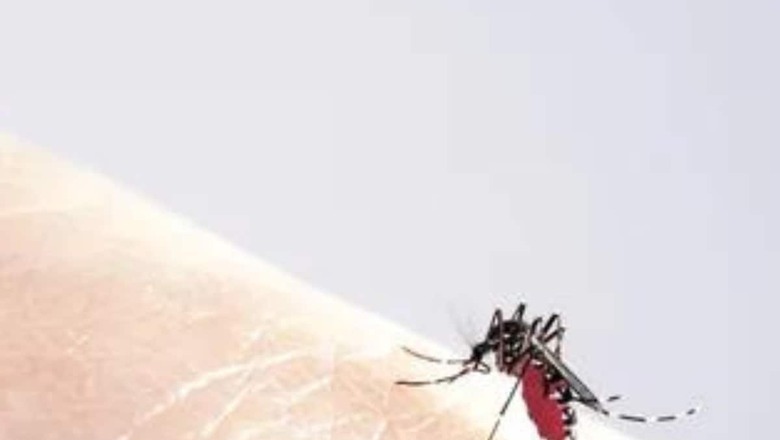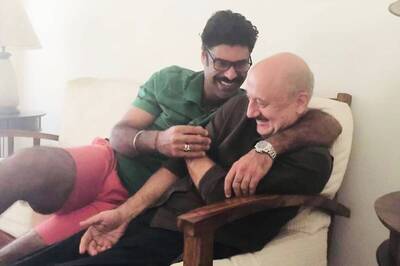
views
Dengue is on the prowl in Kolkata. At least a couple of deaths have been recorded with more than 1,000 affected this season. Dengue cases are 1.5 times more this year in the city, say experts. According to doctors, the number of infected people is 40 to 50 per cent higher than last year. The key concern for doctors and hospitals is that they are receiving more severe cases this time. In some cases, due to dengue-associated HLH (Haemophagocytic lymphohistiocytosis), there is an uncontrolled activation of the immune system (cytokine storm), leading to death.
There are three representations of dengue generally, say doctors. The first is dengue fever, the second is dengue haemorrhagic fever (where platelet count goes down), and the third is dengue shock syndrome (pressure drops, which may lead to multi-organ failure).
According to Dr Kundan Chaurasia, “This year, almost 1.5 times more patients have come. The number of cases is more. We are getting dengue haemorrhagic fever and dengue shock syndrome also. Occupancy in hospitals too is increasing. If this pattern goes on like this, there might be pressure on hospitals and demand for platelets could go up.”
45-year-old Anirban Roy from south Kolkata had a high fever on August 30. When his temperature crossed 102 degrees in the morning, his wife Anamika Roy immediately took him for a dengue test. The reports that came in the evening were positive and his platelet count was 1.23 lakh. He was advised by doctors to drink more water and take another platelet test the next day. This showed the count had fallen to 98,000, and it was down to 39,000 the following day when he was advised hospitalisation. The count further dropped to 19,000 and he had to receive six units of platelets before he recovered.
The swift testing and constant monitoring helped Anirban recover, said doctors. They added that many patients take such fever lightly, which can prove fatal.
Infectious diseases expert Dr Sayan Chakraborty told News18, “This time more severe dengue cases are coming, which is concerning. This is because people are getting affected for a second time and also many are not taking the fever seriously. People are getting themselves tested late and are reaching the hospital late.”
If you have a fever, get tested
Senior infectious diseases expert Yogiraj Roy said, “If you have a fever, don’t wait and go for a test within 24 hours. Try to wear full-sleeved clothes early in the morning and around dusk. Also, do everything possible to protect yourself from mosquito bites. If you are infected with dengue, constant monitoring of platelets and PCV (packed cell volume) is required. You should be under constant supervision and if platelets drop below 50,000, do not delay hospitalisation.”
The local administration has also increased monitoring. A Kolkata Municipal Corporation officer told News18, “The KMC has also augmented surveillance. We have been trying to spread awareness. Also, drones have been deployed to detect larvae in abandoned factories and other places.”
Liver too attacked
Dr Tanmay Banerjee, director of the Medica Institute of Critical Care and coordinator of the Department of Internal Medicine, said, “Compared to July and August of last year, we have witnessed a significant rise in the number of dengue patients in our hospital during the same period this year. The increase in dengue cases this year compared to last year stands at 40-50%. At Medica, presently we are treating 28 dengue patients, of whom 12 have been admitted to the general ward, 10 to the high-dependency unit (HDU), and six to the intensive care unit (ICU). This year, we are observing a higher incidence of liver-related issues among dengue patients, a phenomenon that was relatively rare earlier.”
A senior administrative officer of another private hospital told News18, “There is a surge of dengue in Kolkata.
Dengue-positive occupancy has seen a considerable spike. Cases are mostly mild to moderate, but some are severe and a few critical. Recently, cases of cytokine storm and acute immune response have also been noted. A few deaths have been reported sporadically. Recoveries are more in 7 to 10 days.”
Experts say the dengue season will continue for one and a half months more, till the temperatures start going down, so everyone should follow the “dos and don’ts” religiously.
What to do
- Go for testing in 24 hours if you have a fever.
- Constantly monitor your platelet count. If it reaches below 50,000, consult a doctor and get yourself hospitalised.
- Try to wear full-sleeved shirts/t-shirts and full-length trousers if you go out.
What not to do
- Don’t drink papaya juice if you have dengue.
- Don’t wait to get tested for fever, thinking that it may be just the flu.
- Don’t self-medicate.
Experts also say that a proactive, strategic, and long-term vision of public health policies with a focus on alleviating the ailments of the population is needed. It has to be part of the governance process, they say, instead of a seasonal, knee-jerk, stopgap arrangement.




















Comments
0 comment